December 17, 2014 •
Akron City Council Increases Campaign Contribution Limits
On Monday, December 15, Akron City Council voted 8-4 to raise campaign contribution limits for mayoral and council candidates. All limits will increase by $100. Candidates for mayor and at-large council will be permitted to accept $750 per election and […]
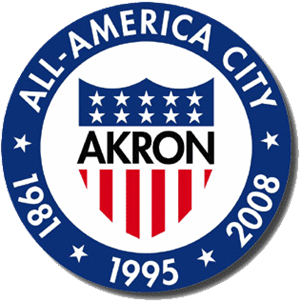 On Monday, December 15, Akron City Council voted 8-4 to raise campaign contribution limits for mayoral and council candidates. All limits will increase by $100.
On Monday, December 15, Akron City Council voted 8-4 to raise campaign contribution limits for mayoral and council candidates. All limits will increase by $100.
Candidates for mayor and at-large council will be permitted to accept $750 per election and ward council candidates will be permitted to accept $500 per election. The city charter requires council to review the contribution limits every two years.
The new limits come just in time for next year’s election as all council seats as well as the mayoral seat will be on the ballot.
November 18, 2014 •
No Changes Made to Campaign Contribution Limits in Akron
On Monday, the Akron City Council rules committee voted to wait to make changes to the city’s campaign contribution limits. Council President Gary Moneypenny’s proposal would have increased the limits for mayoral and council candidates by $100. Former Councilman Warner […]
 On Monday, the Akron City Council rules committee voted to wait to make changes to the city’s campaign contribution limits.
On Monday, the Akron City Council rules committee voted to wait to make changes to the city’s campaign contribution limits.
Council President Gary Moneypenny’s proposal would have increased the limits for mayoral and council candidates by $100.
Former Councilman Warner Mendenhall, who promoted a petition for the original contribution limits in 1998, protested the proposed changes during the afternoon committee meeting.
November 17, 2014 •
Akron City Council to Consider Raising Campaign Contribution Limits
The Akron City Council is considering legislation to increase campaign finance limits for mayoral and council candidates. Limits for mayor and at-large council candidates would increase to $750 and the limit for ward council candidates would increase to $500. The […]
 The Akron City Council is considering legislation to increase campaign finance limits for mayoral and council candidates. Limits for mayor and at-large council candidates would increase to $750 and the limit for ward council candidates would increase to $500.
The Akron City Council is considering legislation to increase campaign finance limits for mayoral and council candidates. Limits for mayor and at-large council candidates would increase to $750 and the limit for ward council candidates would increase to $500.
The council is waiting to take action on the legislation until after public hearings have been held. Hearings will take place at the Rules Committee meeting and at the regular council meeting later today.
The 10 ward council seats, the three at-large council seats, and the mayoral seat will all be on the 2015 election ballot.
October 15, 2014 •
FitzGerald Proposes Amendment Clarifying County Contracting Ban
Cuyahoga County Executive Ed FitzGerald proposed an amendment at Tuesday’s County Council meeting seeking to clarify the county’s code in light of an independent county board ruling. The Debarment Review Board, a panel largely made up of FitzGerald appointees, effectively […]
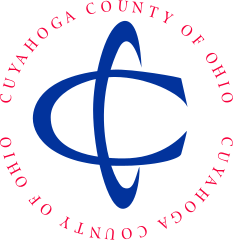 Cuyahoga County Executive Ed FitzGerald proposed an amendment at Tuesday’s County Council meeting seeking to clarify the county’s code in light of an independent county board ruling. The Debarment Review Board, a panel largely made up of FitzGerald appointees, effectively shortened the county contracting ban for a former contractor convicted of corruption.
Cuyahoga County Executive Ed FitzGerald proposed an amendment at Tuesday’s County Council meeting seeking to clarify the county’s code in light of an independent county board ruling. The Debarment Review Board, a panel largely made up of FitzGerald appointees, effectively shortened the county contracting ban for a former contractor convicted of corruption.
The board ruled William Neiheiser’s ban should have begun the day he was convicted of bribery in July 2011 and run through July 2016. County Inspector General Nailah Byrd imposed the ban from June 2014 to June 2019.
FitzGerald’s proposed amendment stipulates contracting bans are to begin the day they are publicly handed down by the county inspector general enforcing the policy.
September 30, 2014 •
Supreme Court Stays Ohio Early Voting Decision
In a 5-4 decision, the U.S. Supreme Court stayed a lower court order requiring the state to begin early voting on September 30, 2014. The stay eliminates the period known as the “Golden Week,” when voters were able to register […]
 In a 5-4 decision, the U.S. Supreme Court stayed a lower court order requiring the state to begin early voting on September 30, 2014.
In a 5-4 decision, the U.S. Supreme Court stayed a lower court order requiring the state to begin early voting on September 30, 2014.
The stay eliminates the period known as the “Golden Week,” when voters were able to register and vote on the same day.
The stay will remain in effect until the state formally appeals the lower court’s order and the Court acts upon that appeal.
June 19, 2014 •
Ohio JLEC Issues Opinion on Tickets to Charitable Fundraisers
The Ohio Joint Legislative Ethics Committee recently issued an advisory opinion clarifying certain gift reporting requirements for members, candidates, and employees of the General Assembly. The opinion also applies to reports filed by any legislative agent providing a gift to […]
 The Ohio Joint Legislative Ethics Committee recently issued an advisory opinion clarifying certain gift reporting requirements for members, candidates, and employees of the General Assembly. The opinion also applies to reports filed by any legislative agent providing a gift to a reportable person.
The Ohio Joint Legislative Ethics Committee recently issued an advisory opinion clarifying certain gift reporting requirements for members, candidates, and employees of the General Assembly. The opinion also applies to reports filed by any legislative agent providing a gift to a reportable person.
Advisory Opinion 2014-003 speaks to the value of a complimentary ticket to a charitable fundraiser where the source of the ticket is a third party. When provided by a third party, a complimentary ticket to a non-political fundraiser is a gift, the value of which is the portion of the ticket price that is not tax-deductible.
Furthermore, such portion accrues toward any applicable gift limit. Conversely, a ticket to a charitable fundraiser where the source is the entity holding the event is not considered a gift.
June 16, 2014 •
Ohio Lawmakers to Introduce Campaign Finance Legislation
Ohio Reps. Nick Celebrezze and Ronald Gerberry announced plans last week to introduce legislation creating a campaign contribution blackout for the attorney general’s office. New legislation would prohibit contributions to the attorney general and to any party-endorsed candidates for the […]
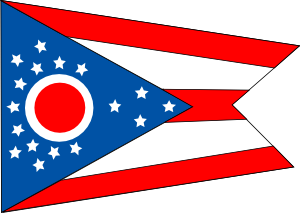 Ohio Reps. Nick Celebrezze and Ronald Gerberry announced plans last week to introduce legislation creating a campaign contribution blackout for the attorney general’s office. New legislation would prohibit contributions to the attorney general and to any party-endorsed candidates for the office while the office is reviewing bids on contract work.
Ohio Reps. Nick Celebrezze and Ronald Gerberry announced plans last week to introduce legislation creating a campaign contribution blackout for the attorney general’s office. New legislation would prohibit contributions to the attorney general and to any party-endorsed candidates for the office while the office is reviewing bids on contract work.
Celebrezze believes a blackout period will help eliminate the appearance of impropriety. Attorney General Mike DeWine, however, claims enforcement of the blackout periods makes the process inherently more political. Moreover, he said contributions have not influenced his decision to award contract work.
April 10, 2014 •
House Bill 483 to Alter Ohio Campaign Finance Law
On Wednesday, April 9, the Ohio House of Representatives passed a large piece of Gov. Kasich’s mid-biennium budget proposal. Prior to passage, House Republicans added numerous amendments to House Bill 483; it is now more than 800 pages long. One […]
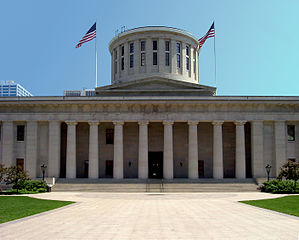
On Wednesday, April 9, the Ohio House of Representatives passed a large piece of Gov. Kasich’s mid-biennium budget proposal. Prior to passage, House Republicans added numerous amendments to House Bill 483; it is now more than 800 pages long.
One amendment voids administrative rule 111-3-05 and changes state campaign finance law by lifting the disclosure requirement for corporations and labor organizations making independent expenditures. It also allows foreign-owned corporations and corporations with state contracts to spend money promoting or opposing state candidates.
Former Secretary of State Jennifer Brunner issued the rule in 2011 and fears its repeal will make it easier for national political interests to operate state-based Super PACs.
The bill passed the House by a primarily partisan vote of 57-33 and will now be sent to the Senate for consideration.
Photo of the Ohio State Capitol by Alexander Smith on Wikimedia Commons.
December 10, 2013 •
Ohio School Board Member Resigns After Allegations of Ethics Violations
State school board member Bryan Williams resigned after allegedly violating provisions of the state ethics laws by lobbying the government for private interests. The law prohibits an elected member of a state board or commission from receiving compensation for services […]
 State school board member Bryan Williams resigned after allegedly violating provisions of the state ethics laws by lobbying the government for private interests. The law prohibits an elected member of a state board or commission from receiving compensation for services he or she performs personally on a matter before any state agency.
State school board member Bryan Williams resigned after allegedly violating provisions of the state ethics laws by lobbying the government for private interests. The law prohibits an elected member of a state board or commission from receiving compensation for services he or she performs personally on a matter before any state agency.
When first appointed to fill a vacant seat, an exemption in state law allowed Williams to simultaneously serve in a public position while advocating as a lobbyist. Upon his election in 2012, however, the exemption no longer applied. The Ohio Ethics Commission has not confirmed any investigation or future legal actions.
November 28, 2013 •
Ohio Ethics Commission Issues Rule Regarding Payment and Reimbursement of Travel Expenses
The Ohio Ethics Commission issued a new rule clarifying when another party may pay or reimburse a public official or employee for travel expenses. A public official or employee may accept a thing of value if it “is not of […]
 The Ohio Ethics Commission issued a new rule clarifying when another party may pay or reimburse a public official or employee for travel expenses. A public official or employee may accept a thing of value if it “is not of such a character as to manifest a substantial and improper influence on the traveler with respect to that person’s duties.”
The Ohio Ethics Commission issued a new rule clarifying when another party may pay or reimburse a public official or employee for travel expenses. A public official or employee may accept a thing of value if it “is not of such a character as to manifest a substantial and improper influence on the traveler with respect to that person’s duties.”
A two-prong test has been put in place for determining whether travel expenses or reimbursements are of such character.
The rule overturns portions of two previously issued Ohio Ethics Commission Advisory Opinions. It also requires public officials or employees to disclose the source and amount of all travel expenses and reimbursements.
November 13, 2013 •
Ohio Bill to Require Identification Badges for Lobbyists
Rep. Hagan introduced HB 339 last week. HB 339 would enact section 105.43 of the Revised Code and require the capitol square review and advisory board to issue identification badges to all lobbyists seeking entrance to capitol square. Each badge […]
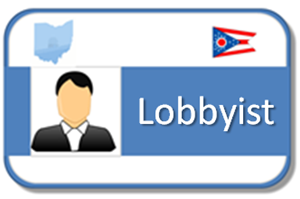 Rep. Hagan introduced HB 339 last week. HB 339 would enact section 105.43 of the Revised Code and require the capitol square review and advisory board to issue identification badges to all lobbyists seeking entrance to capitol square. Each badge would show a lobbyist’s name, a photograph of the lobbyist, clearly state the term “lobbyist” on the face of the badge, and list the lobbyist’s employer or employers.
Rep. Hagan introduced HB 339 last week. HB 339 would enact section 105.43 of the Revised Code and require the capitol square review and advisory board to issue identification badges to all lobbyists seeking entrance to capitol square. Each badge would show a lobbyist’s name, a photograph of the lobbyist, clearly state the term “lobbyist” on the face of the badge, and list the lobbyist’s employer or employers.
The bill also requires each lobbyist to carry a card stating the name of the person or persons whose interest the lobbyist actually represents; said card must be shown to any member of the general assembly requesting to see it.
October 14, 2013 •
Ohio H.B. 295 Introduced
Affecting Legislative Agent Reporting Requirements
 A bill introduced October 10 by Rep. Robert Hagan proposes to amend sections 101.72, 101.73, and 101.75 of the Revised Code. H.B. 295 would require a legislative agent to report to the Joint Legislative Ethics Committee compensation paid to the agent by the agent’s employer. This would be an additional requirement, as the current sections of code require the reporting of expenditures only.
A bill introduced October 10 by Rep. Robert Hagan proposes to amend sections 101.72, 101.73, and 101.75 of the Revised Code. H.B. 295 would require a legislative agent to report to the Joint Legislative Ethics Committee compensation paid to the agent by the agent’s employer. This would be an additional requirement, as the current sections of code require the reporting of expenditures only.
The bill was co-sponsored by Reps. Pillich and Foley.
Photo of the Ohio Statehouse by Wikimedia Creative Commons.
October 14, 2013 •
Ohio Lobbyist IDs Not Yet Ready for Pickup
Notice to Disregard Erroneous Email
 Steve Friday of the Capitol Square Review and Advisory Board announced Lobbyist IDs are not yet ready for pickup. Those who received an erroneous email indicating anything to the contrary should disregard it.
Steve Friday of the Capitol Square Review and Advisory Board announced Lobbyist IDs are not yet ready for pickup. Those who received an erroneous email indicating anything to the contrary should disregard it.
The board is waiting on supplies before the remainder of the ID cards can be processed. An email notification will be sent out when the IDs are ready.
June 28, 2013 •
State & Federal Team participates in United Way Day of Action
Employees and Interns paint at East Akron YMCA
Last week on Friday, June 21, 2013, fourteen of our State & Federal Communications’ employees, including five interns, visited the East Akron YMCA on South Main Street to celebrate United Way Day of Action. After a warm welcome from Director and Vice President of Community Development Tony Grimes, the State & Fed team brought out the rollers, paintbrushes, and cans of “Legendary Blue” paint and began the day of service.
Dressed in t-shirts that read “Live United,” each member of State & Federal Communications pulled his or her own weight in work; all participated in painting the gymnasium walls and doors as well as numerous hallways. However, the volunteers never felt the task to be daunting and instead thought of it as more of a privilege.
 “Though I have lived in Akron my whole life, I am often introduced to places in this community that could use a little assistance. I am always eager to help in any way possible, and I am thankful for United Way Day of Action in giving me the opportunity to do just that,” recalls Research Intern Cristina Dickos.
“Though I have lived in Akron my whole life, I am often introduced to places in this community that could use a little assistance. I am always eager to help in any way possible, and I am thankful for United Way Day of Action in giving me the opportunity to do just that,” recalls Research Intern Cristina Dickos.
State & Federal Communications has participated in United Way Day of Action for several years, and each year the company looks forward to spending a day outside the office, showing that our work reaches beyond the desk.
Marketing Intern, Joanna Kamvouris, shared her sentiments: “Day of Action gave me a chance to appreciate what I sometimes take for granted and help brighten the day of children and workers within our Akron community,” Kamvouris said. “The work we completed as a team went beyond applying bright blue paint to the walls along the East Akron YMCA. We came together and made a difference that the children will see every time they visit the YMCA.”
State and Federal Communications, Inc. provides research and consulting services for government relations professionals on lobbying laws, procurement lobbying laws, political contribution laws in the United States and Canada. Learn more by visiting stateandfed.com.


